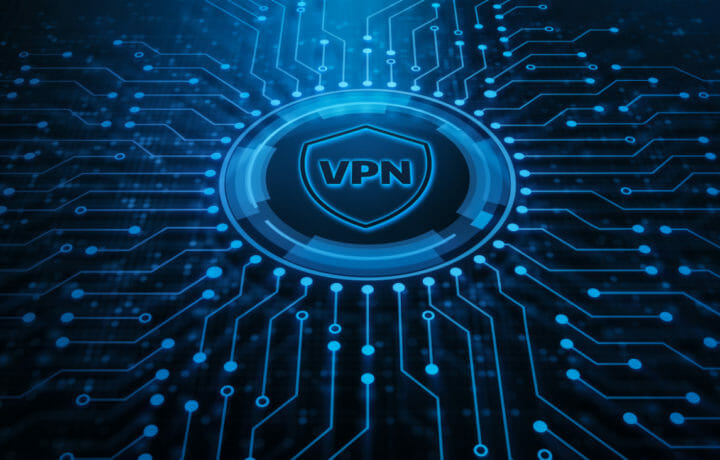The more layers of security and privacy you have, the better. Previously, we looked at how to choose the best encrypted messaging apps for your needs. But another layer that helps keep your data private? Virtual Private Networks (VPN). These are apps that allow you to access the internet securely and privately. Regular browsing can expose your IP address, location, browsing history, and online activity to your internet service provider (ISP), websites, advertisers, hackers, or even government agencies. VPNs can help hide or mask your online identity and data.
Why You Need a VPN
VPNs create a secure tunnel between your device and a remote server. All your internet traffic is routed through this tunnel, which encrypts and protects your data from anyone who tries to intercept or monitor it. VPNs also change your IP address to one of the servers you are connected to, making it appear that you are browsing from a different location. This can help you access geo-restricted content or bypass censorship. VPNs are easy to use and offer fast and reliable performance. However, the best VPNs are not free; you must pay a monthly or yearly fee ranging from $60 to $100 per year.
VPNs are not completely anonymous; they can still collect some metadata from you, such as your actual IP address, the time and duration of your connection, the amount of data transferred, and the server you are connected to. This metadata can be accessed by the VPN provider or by law enforcement agencies with a warrant or a subpoena. Therefore, you should choose a VPN with a strict no-logs policy, meaning it does not store or share your data with anyone.
Choosing a VPN
Here are some of the best VPNs for clearance holders.
1. ExpressVPN
ExpressVPN is one of the more popular and trusted VPNs in the world, although it has its detractors. It has over 3,000 servers in 94 countries, which offer fast and stable connections. It uses robust encryption protocols and features such as kill switch, split tunneling, DNS leak protection, and TrustedServer technology to ensure your security and privacy. It does not collect any logs or personal information from its users. It supports multiple devices and platforms, including Android, iOS, Windows, Mac OS X, Linux, routers, smart TVs, and game consoles.
2. NordVPN
NordVPN is another well-known and reputable VPN service. It has over 5,400 servers in 59 countries, which offer fast and reliable connections. It uses strong encryption protocols and features such as a kill switch, split tunneling DNS leak protection, CyberSec (malware and ad blocker), Double VPN (two layers of encryption), Onion over VPN (Tor integration), and obfuscated servers (stealth mode) to enhance your security and privacy. It does not collect any logs or personal information from its users. It supports multiple devices and platforms, including Android, iOS, Windows, Mac OS X, Linux, routers, smart TVs, and game consoles.
3. ProtonVPN
ProtonVPN is a VPN service created by the same team behind ProtonMail, a secure email service. Its over 1,200 servers in 54 countries offer decent speeds and connections. It uses robust encryption protocols and features such as kill switch, split tunneling, DNS leak protection, Secure Core (multi-hop servers), Tor over VPN (Tor integration), NetShield (malware and ad blocker), P2P support (file sharing), and streaming support (Netflix) to protect your security and privacy. It does not collect any logs or personal information from its users. It also supports multiple devices and platforms, including Android, iOS, Windows, Mac OS X, Linux, and routers. ProtonVPN is unique because it offers a free plan allowing unlimited data on one device with servers in three countries. However, the free plan has limited speed and features compared to the paid plans.
4. Surfshark
Surfshark is a relatively new but fast-growing VPN service. It has over 3,200 servers in 65 countries, which offer fast and stable connections. It uses robust encryption protocols and features such as kill switch, split tunneling, DNS leak protection, CleanWeb (malware and ad blocker), Whitelister (allows specific apps or websites to bypass the VPN), MultiHop (two layers of encryption), Camouflage Mode (stealth mode), NoBorders Mode (bypass censorship), and streaming support (Netflix) to safeguard your security and privacy. It does not collect any logs or personal information from its users. It supports multiple devices and platforms, including Android, iOS, Windows, Mac OS X, Linux, routers, smart TVs, and game consoles.
5. Mozilla VPN
Mozilla VPN is a VPN service developed by Mozilla, the company behind the Firefox browser. It has over 400 servers in 30 countries, which offer decent speeds and connections. It uses strong encryption protocols and features such as a kill switch, split tunneling, DNS leak protection, device-level encryption, and WireGuard protocol to ensure security and privacy. It does not collect any logs or personal information from its users. It supports multiple devices and platforms, including Android, iOS, Windows, Mac OS X, and Linux.
Personal or Work VPN? Do you need both?
Not all VPNs are equally secure or reliable. Carefully evaluate the security features, privacy policies, usability, functionality, and compatibility of each VPN before choosing the one that suits your needs.
Another thing to note is that using your work VPN is not the same as using a personal VPN. Your work VPN may protect your data from external threats but also expose your data to internal threats. Your employer may monitor or log your online activity when you use your work VPN, which could compromise your privacy and security. Your work VPN may restrict or block some websites or apps you want to access for personal reasons. Always use a personal VPN on your devices when you are not working.



